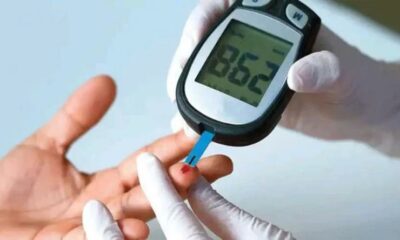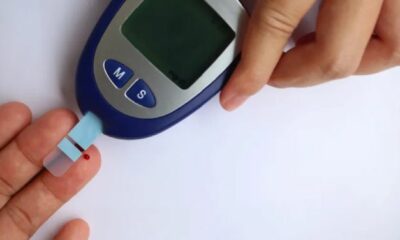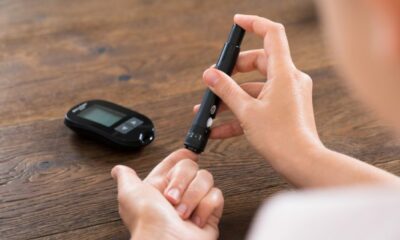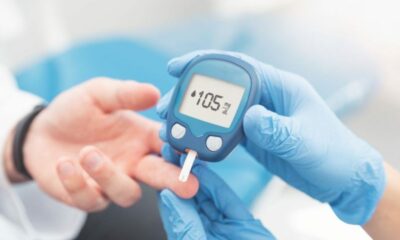For people living with diabetes, maintaining healthy blood sugar levels is a constant balancing act. While high blood sugar (hyperglycemia) can lead to long-term complications, low blood sugar (hypoglycemia) presents a more immediate concern.
Hypoglycemia, also known as a “hypo,” occurs when blood sugar levels fall below the recommended range. This can happen for various reasons, and recognizing the signs and symptoms is crucial for prompt action and preventing serious consequences.
This article delves into understanding hypoglycemia, exploring its:
- Symptoms: Learn to recognize the early warning signs of a hypoglycemic episode.
- Causes: Discover various factors that can contribute to low blood sugar levels.
- Prevention Strategies: Explore effective strategies to minimize the risk of hypoglycemia.
- Treatment: Understand how to treat a hypoglycemic episode effectively.
- Long-Term Management: Learn how to communicate effectively with your healthcare team to adjust your diabetes management plan and reduce the risk of future hypoglycemia.
Recognizing the Signs and Symptoms of Hypoglycemia
The body sends out early warning signals when blood sugar levels drop. Being familiar with these symptoms is crucial for taking timely action:
- Early Signs (Blood sugar levels between 70-54 mg/dL):
- Sweating
- Shaking or tremors
- Feeling jittery or anxious
- Palpitations or rapid heartbeat
- Hunger pangs
- Irritability
- Pale or clammy skin
- Late Signs (Blood sugar levels below 54 mg/dL):
- Confusion
- Difficulty concentrating
- Slurred speech
- Dizziness or lightheadedness
- Blurred vision
- Seizures (in severe cases)
- Loss of consciousness (in severe cases)
If you experience any of these symptoms, it’s important to check your blood sugar level immediately using a glucometer.
Understanding the Causes of Hypoglycemia
Several factors can contribute to low blood sugar levels:
- Missed or Delayed Meals: Skipping meals or delaying meals can cause a significant drop in blood sugar levels.
- Too Much Medication: Taking too much insulin or diabetes medications can lead to hypoglycemia.
- Increased Physical Activity: Engaging in more physical activity than usual without adjusting medication or food intake can lead to a hypoglycemic episode.
- Alcohol Consumption: Alcohol can interfere with the body’s ability to regulate blood sugar levels, increasing the risk of hypoglycemia.
- Certain Medical Conditions: Certain medical conditions, such as liver or kidney disease, can affect how the body processes medications and hormones, influencing blood sugar levels.
- Hormonal Changes: Menstrual cycles in women with diabetes can lead to fluctuations in blood sugar levels.
Effective Strategies to Prevent Hypoglycemia
By adopting these strategies, you can minimize the risk of experiencing a hypoglycemic episode:
- Plan Your Meals and Snacks: Maintain a consistent eating schedule and include healthy snacks throughout the day to prevent blood sugar levels from dropping too low.
- Balance Your Meals: Focus on a balanced diet that includes complex carbohydrates, lean protein, and healthy fats to ensure sustained energy release.
- Adjust Insulin Based on Activity: Discuss with your doctor how to adjust your insulin dosage based on your planned activity level to prevent hypoglycemia during exercise.
- Carry Glucose Tablets or Gels: Always have a readily available source of quick-acting sugar, like glucose tablets or gels, to treat a hypoglycemic episode.
- Monitor Blood Sugar Regularly: Regular blood sugar monitoring throughout the day can help you identify trends and take action before experiencing a hypo.
- Communicate with Your Doctor: Discuss your hypoglycemia experiences with your doctor. They can adjust your medication regimen or suggest strategies to further prevent low blood sugar episodes.
Treating a Hypoglycemic Episode
If you experience a hypoglycemic episode, it’s crucial to act quickly:
- Check Blood Sugar: Use your glucometer to confirm low blood sugar levels.
- Consume Quick-Acting Sugar: Take 15-20 grams of quick-acting sugar, like glucose tablets, gels, or juice (without added sugar).
- Wait 15 Minutes: Wait for 15 minutes and recheck your blood sugar.
- Repeat if Necessary: If your blood sugar is still low, repeat steps 2 and 3 until your blood sugar reaches the recommended range.
Long-Term Management and Communication with Your Healthcare Team
Open communication with your healthcare team is vital for long-term management of hypoglycemia:
- Review Your Medication Regimen: Discuss your experiences with hypoglycemia with your doctor. They might adjust your insulin dosage, medication type, or timing to reduce the risk of future episodes.
Develop a Hypoglycemia Action Plan: Work with your doctor to create a personalized action plan that outlines steps to take when experiencing hypoglycemia. This plan should include details like preferred quick-acting sugar sources, blood sugar monitoring frequency after treatment, and when to seek medical attention.
Discuss Continuous Glucose Monitoring (CGM): CGMs provide continuous real-time blood sugar data. If you experience frequent hypoglycemia, your doctor might recommend a CGM to help you better understand trends and prevent future episodes.
Living Confidently with Diabetes and Minimizing Hypoglycemia
- Hypoglycemia can be frightening, but it’s a manageable aspect of diabetes management. By understanding the signs and symptoms, identifying potential causes, and adopting preventive strategies, you can minimize the risk of experiencing hypoglycemia. Additionally, effective communication with your healthcare team is crucial for tailoring your diabetes management plan to reduce hypoglycemia episodes and improve your overall well-being. Here are some additional tips for living confidently with diabetes and minimizing hypoglycemia:
- Educate Yourself and Others: Gather information about hypoglycemia and share it with family, friends, and colleagues. This can ensure they recognize the signs and symptoms and provide support during a hypoglycemic episode.
- Carry Medical Identification: Always wear a medical alert bracelet or necklace that indicates you have diabetes. This can be crucial in case you experience a severe hypoglycemic episode and require immediate medical attention.
- Don’t Be Afraid to Ask for Help: Living with diabetes can be challenging. Don’t hesitate to seek support from your healthcare team, diabetes educators, or support groups.
- By taking charge of your diabetes management and adopting a proactive approach to preventing hypoglycemia, you can live a full and active life with confidence.
Note: This article provides a comprehensive overview of understanding hypoglycemia. You can consider including personal stories of individuals who have successfully managed their hypoglycemia to further inspire readers. Additionally, you can explore specific resources or programs available in your region to support individuals with diabetes who experience frequent hypoglycemia.

 Diabetology1 week ago
Diabetology1 week ago
 Diabetology1 week ago
Diabetology1 week ago
 Diabetology1 week ago
Diabetology1 week ago
 Diabetology2 weeks ago
Diabetology2 weeks ago
 Diabetology1 week ago
Diabetology1 week ago
 Diabetology2 weeks ago
Diabetology2 weeks ago
 Diabetology2 weeks ago
Diabetology2 weeks ago
 Diabetology2 weeks ago
Diabetology2 weeks ago


















